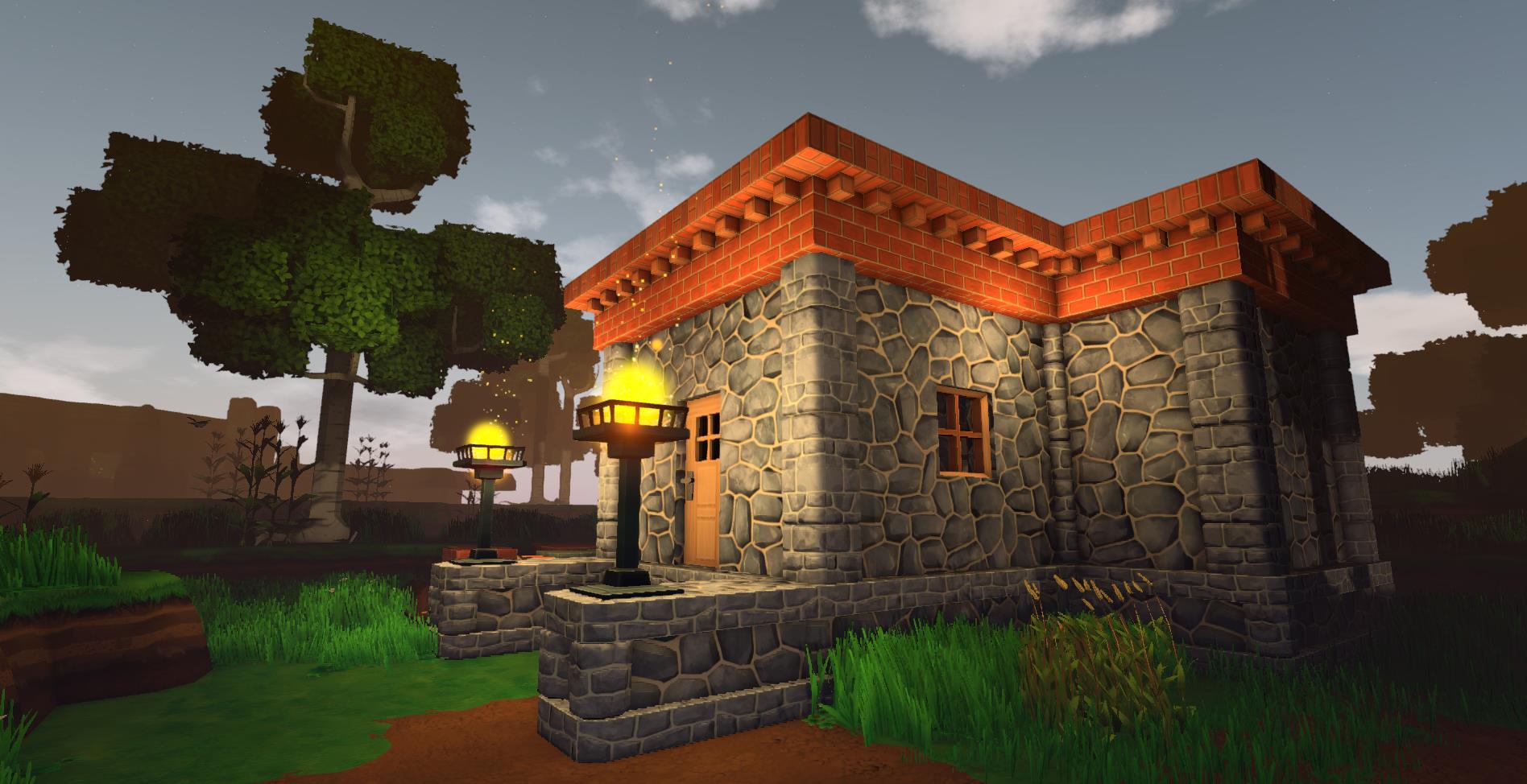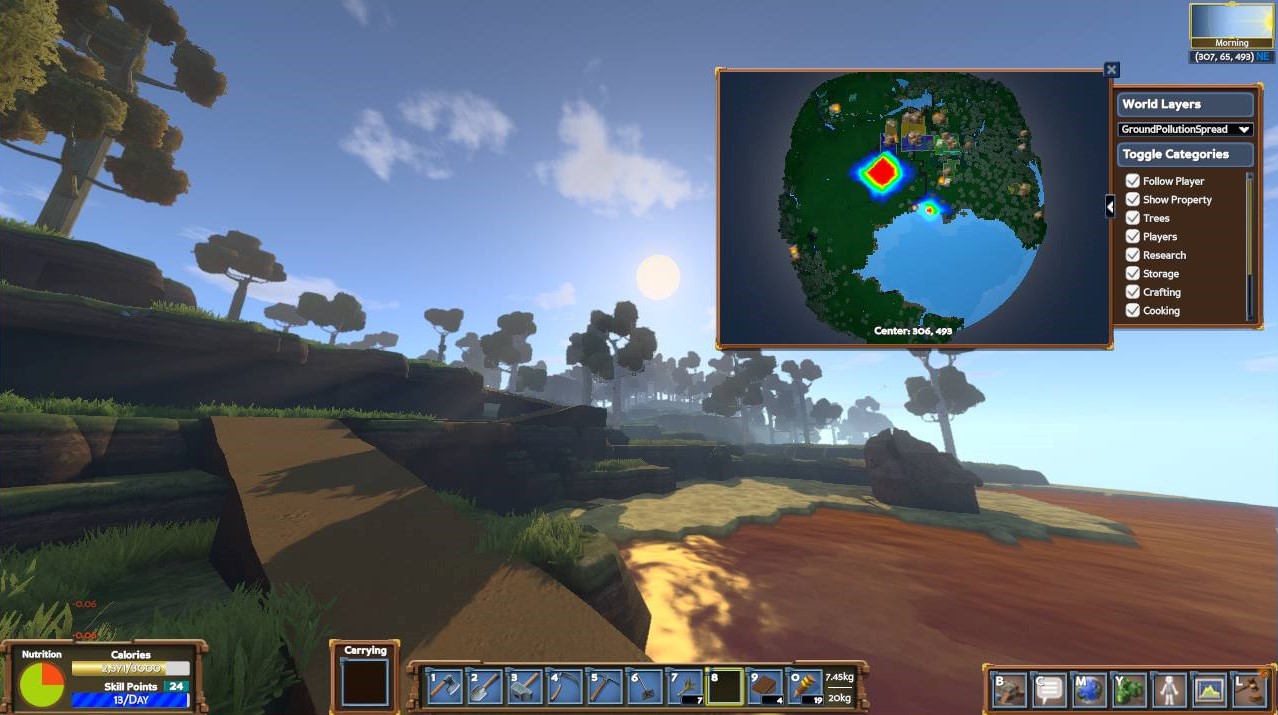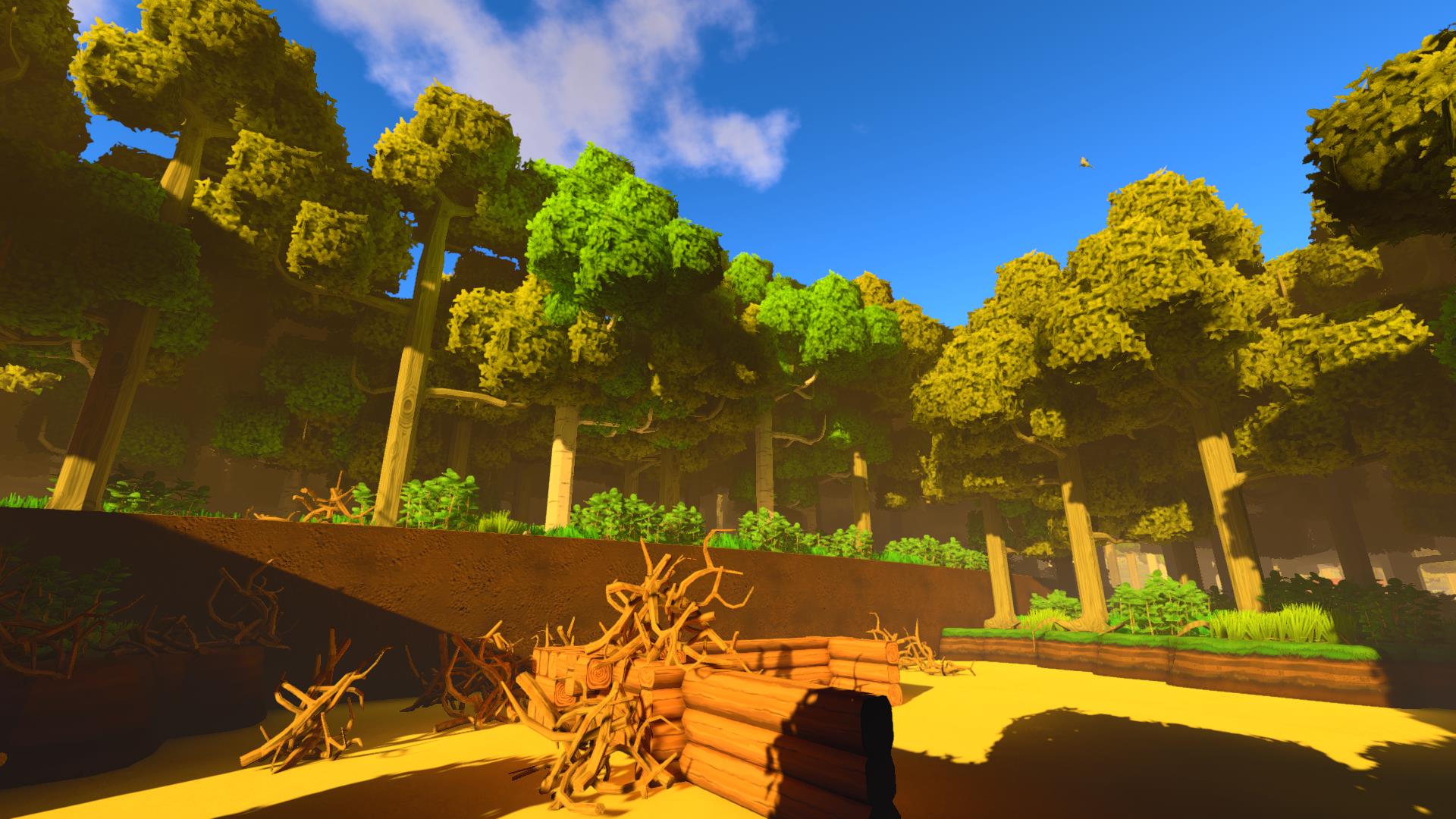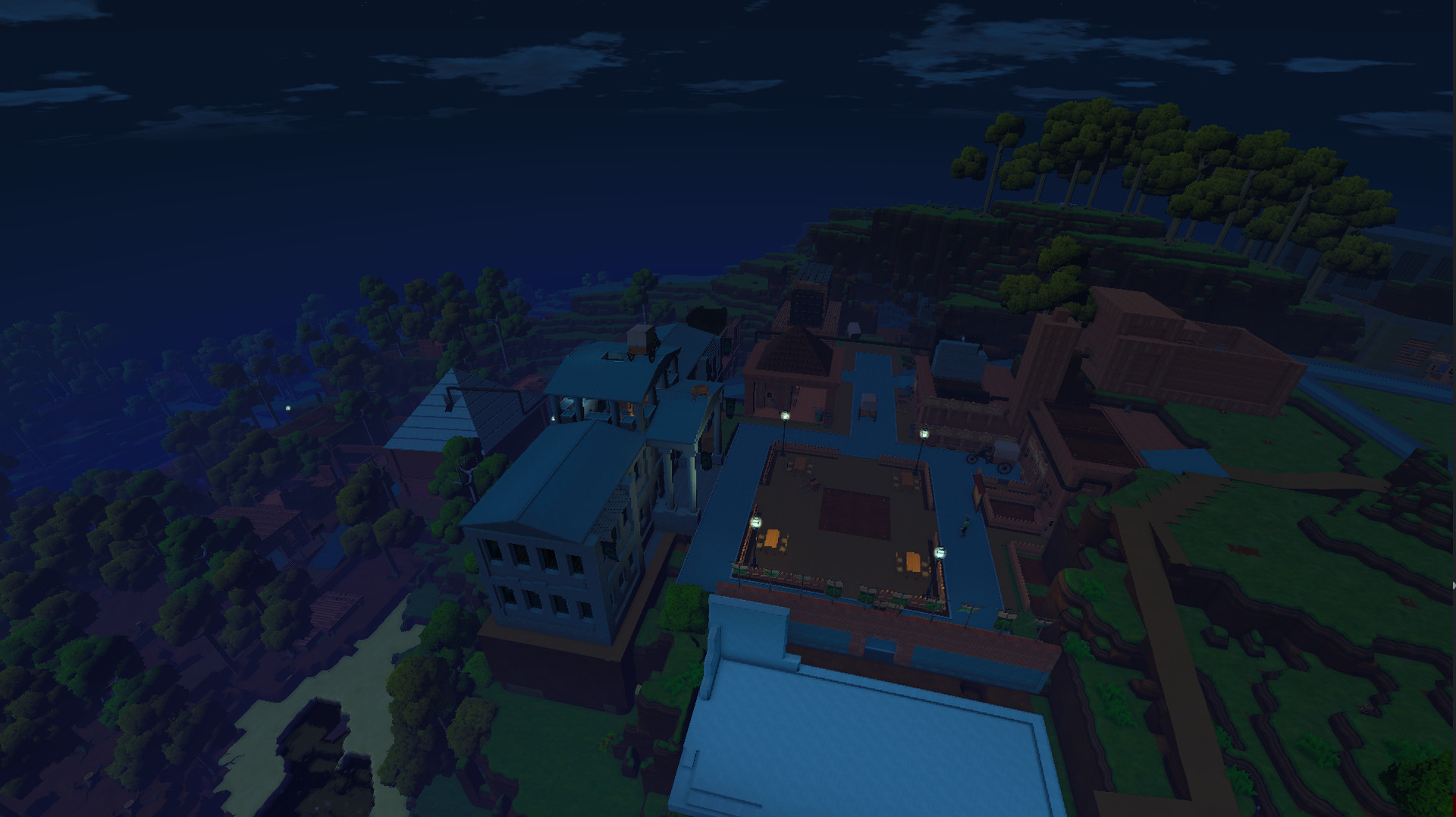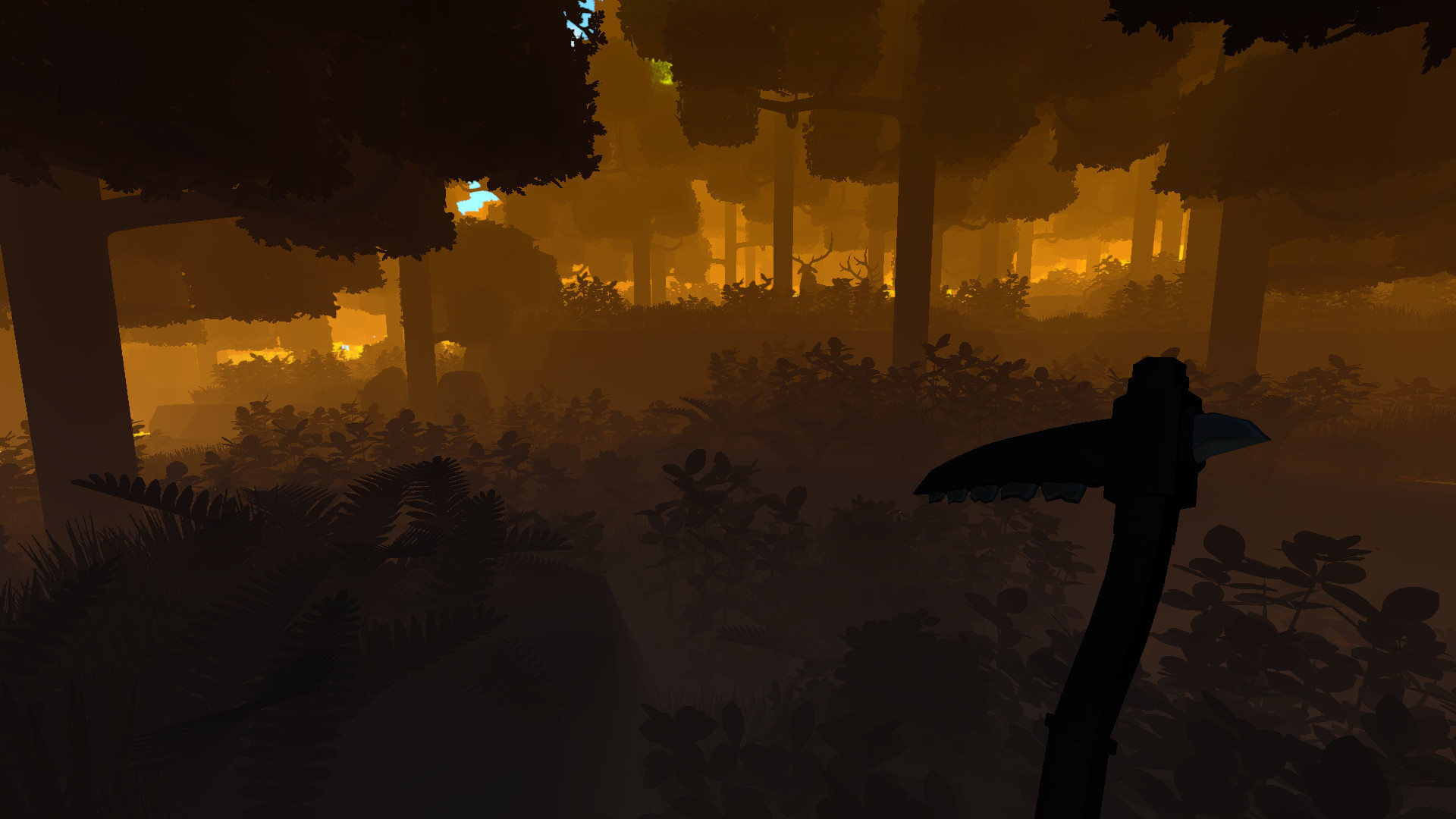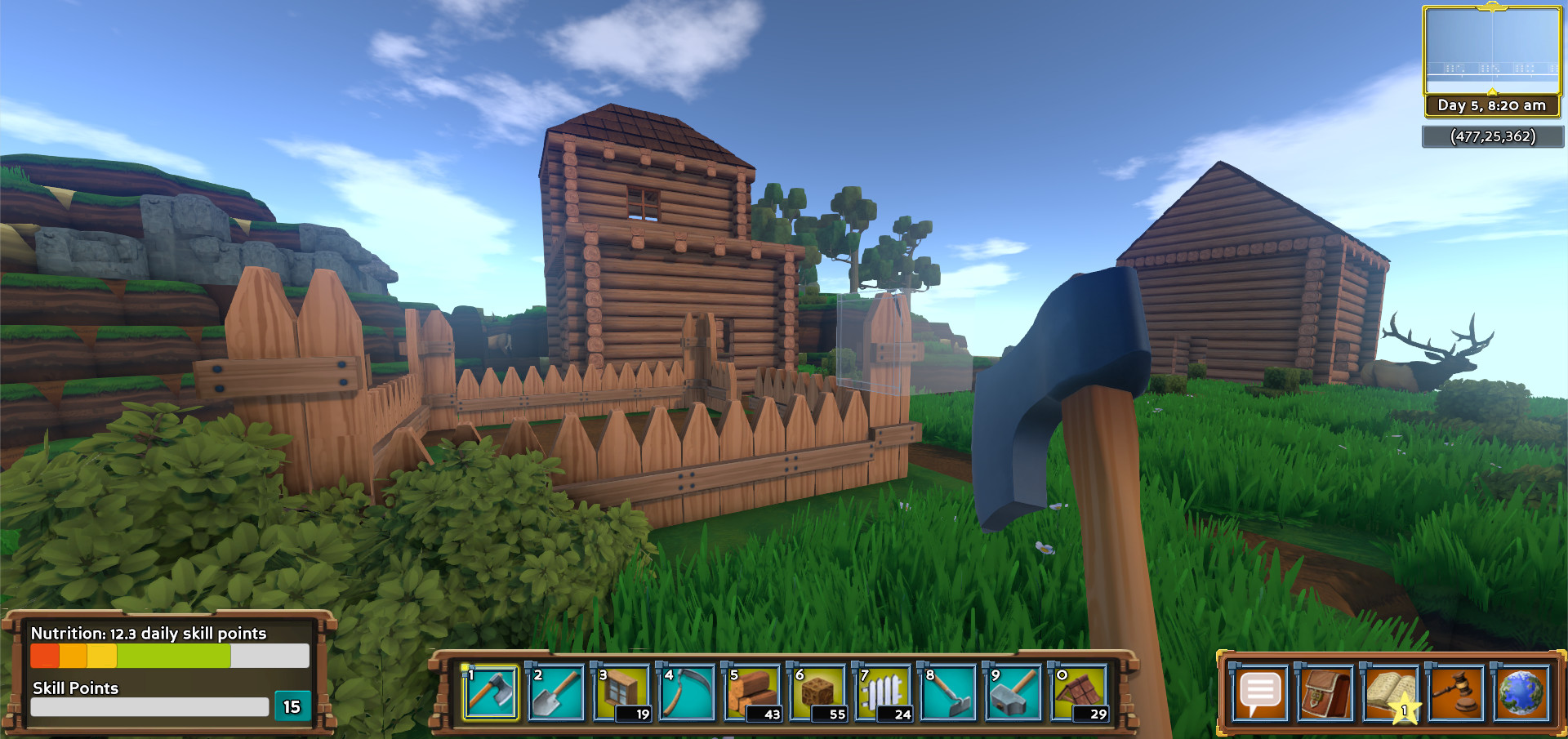Will you and your fellow builders collaborate successfully, creating laws to guide player actions, finding a balance that takes from the ecosystem without damaging it? Or will the world be destroyed by short-sighted choices that pollute the environment in exchange for immediate resource gains? Or, do players act too slowly, and the world is consumed by a disaster that could have been avoided if you developed the right technology? In Eco, you must find a balance as a group if the world is to survive.
A world-survival game
Eco is a survival game in a global sense, where it is not just the individual or group who is threatened, but the world itself. The world of Eco will be home to a population of thousands of simulated plants and animals of dozens of species, each living out their lives on a server running 24 hours a day, growing, feeding and reproducing, with their existence highly dependent on other species.Enter humans into this equation, and things get complicated. It is the role of players to thrive in this environment by using resources from the world to eat, build, discover, learn and invent. However, every resource they take affects the environment it is taken from, and without careful planning and understanding of the ecosystem, lands can become deforested and polluted, habitats destroyed, and species left extinct.
In the extreme, the food supply of the ecosystem can be destroyed, along with all human life on it, resulting in server-wide perma-death. Eco is a game where the player’s actions have meaningful consequences.
- Everything you do affects the ecosystem, and players can destroy their food supply and world (server-wide permadeath)
- Create a player-run government to make decisions as a group, proposing and voting on laws
- Use data gathered from the world to propose and vote on laws as a group. Debate with scientific argumentation.
- Create a player-run economy that allows you to sell not only good but services in the form of server-enforced contracts (simulating a player driven quest system).
- Your food level determines your skill-increase rate, making food very important and tying players directly to the ecosystem from which it comes.
- A game with goals higher than entertainment. We plan to build it for schools as an augmented classroom world students share.
This week Id like to dive into the core of Ecos design a bit, and talk about the principles that guide the design and development of the game. These are things that go way back to the beginning ideas of what Eco would be, and are used to this day to determine what we choose to bring next in the game.
[h1]Game Mission
[/h1]
Ecos design mission is to have players Solve the Tragedy of the Commons, taking place among real people. That means creating conflicts among people with the same end goals, where a collection of self-interests is not enough to succeed, you need some representation of collective interest.
To implement that, the game exists within the intersection of the game's design pillars: Economy, Ecology and Government.
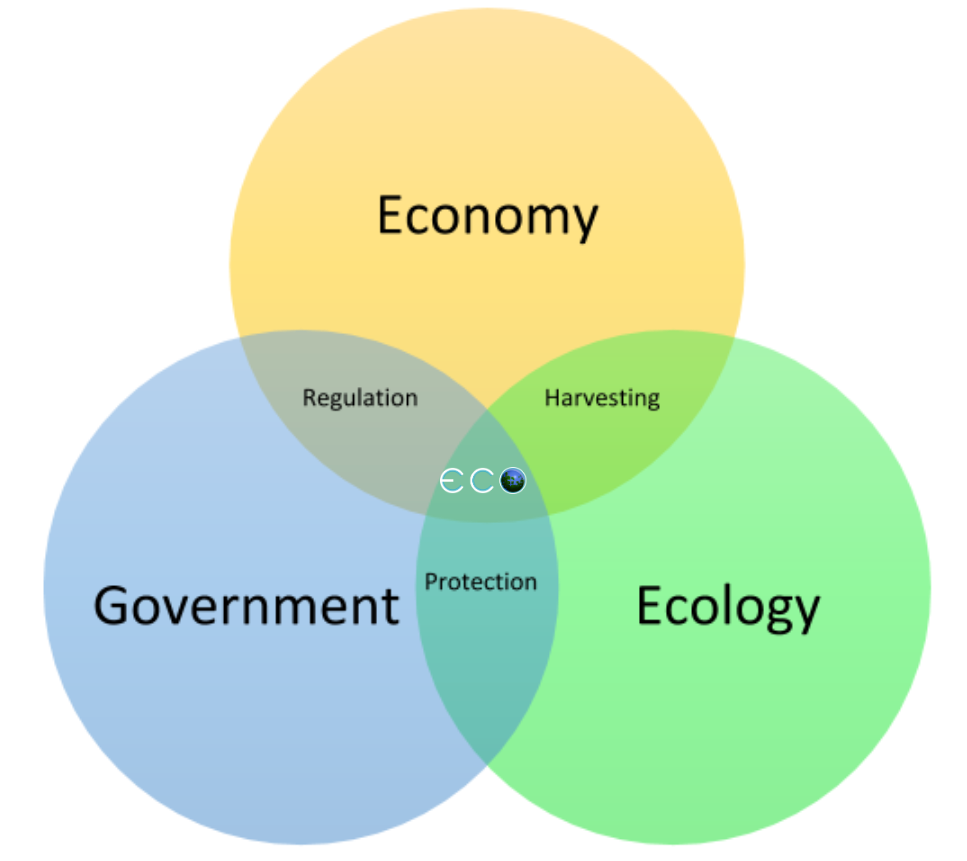
The role of these pillars in the game is as follows:
Economy
Encompasses the efforts and progress of humans. Manufacturing, creating infrastructure, building, harvesting, performing research, specialization, trade. Collaboration and competition is a big goal of this pillar, to connect players together in productive (as well as adversarial) creation. The features of the economy should be grown to support these features, as well as influences from the other two pillars. Key goals of this pillar are:[olist]
[/olist]
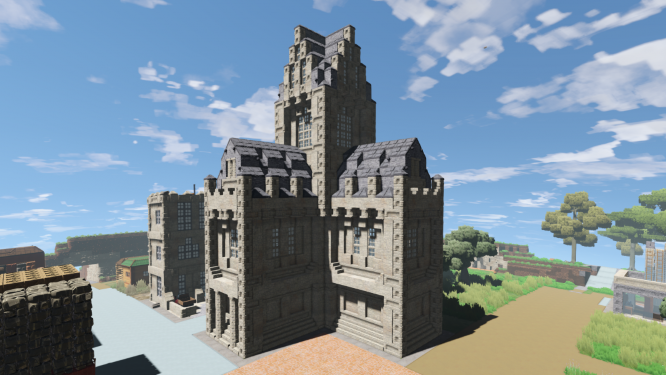
Ecology
The substrate of the player experience, this is the reality that they are forced to contend with. It is both the source of their solutions and problems. Our emphasis when building the Ecology simulation is a feature-set that both affects and is affected by human actions. That is, resources that are useful to the economy, and systems that are vulnerable to pollution and over-harvesting.Beyond that, the ecology is a goal in itself, and the beauty of the ecosystem has natural value in the game outside of any human purpose.
Key goals of this pillar are:
[olist]
[/olist]
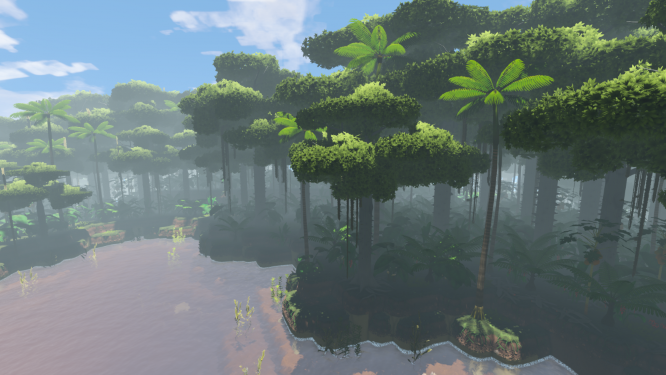
Government
Government in Eco serves as a tool to manage and dictate the relationship between players in the economy, and between the economy and the environment. It needs to be powerful and flexible enough to express a rich variety of governmental structures, and still easy and fun to understand and build (I see these two goals as supportive of each other rather than opposites). Government must be necessary to win the game, allowing players to dictate the interactions that happen with the environment.Key goals of this pillar are:
[olist]
[/olist]
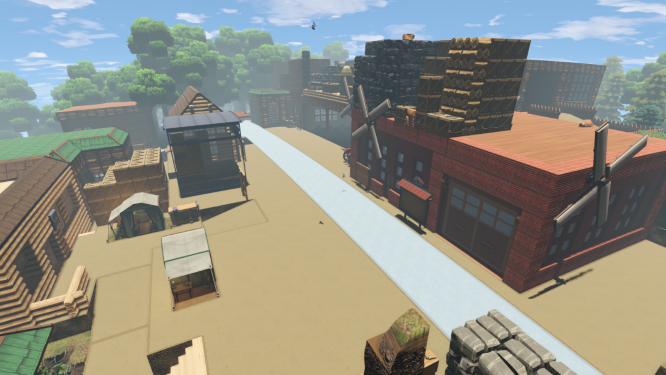
Community
The second mission of Eco is to build meaningful community, and some features may apply to this even if they dont directly promote the Tragedy of the Commons goal. Examples of such features include:As we start to roll out our performance update for 8.2, were tasking out more features for 9.0, and well be using this guide to flesh out the features and content we want to target. Well be putting it into a nice Eco Tree that shows those parts visually and conceptually as they grow. The communitys feedback will factor in a lot to these decisions, so do share your feedback on our Discord, in our Suggestions Github Database, and via email john@strangeloopgames.com
Cheers and thanks for your support, looking forward to sharing all the new stuff well be building.
- Team Eco
Minimum Setup
- Processor: Intel Dual-Core 2.4 GHz or AMD Dual-Core Athlon 2.5 GHzMemory: 2 GB RAM
- Memory: 2 GB RAM
- Graphics: NVIDIA GeForce GT 440 or AMD Radeon HD 5850 or Intel HD Graphics 4000 with 512 MBNetwork: Broadband Internet connection
- Storage: 2 GB available space
Recommended Setup
- Processor: Intel Core i5-2300 or AMD Phenom II X4 940 or betterMemory: 4 GB RAM
- Graphics: NVIDIA GeForce GTX 570 or AMD Radeon HD 7750 with 1 GB VRAM or betterNetwork: Broadband Internet connection
- Storage: 2 GB available space
[ 6487 ]
[ 1519 ]
[ 2422 ]

